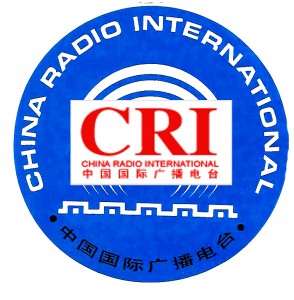 (Source: Today’s Zaman)
(Source: Today’s Zaman)
“I’ve sometimes been challenged trying to find exactly the right word to translate from Turkish into Chinese,” recalled Wenjun Liu, a 37-year-old reporter working at the Turkish Broadcast Service of China Radio International (CRI) in Beijing.
“Thank God, we have Turkish native speakers working here to rush to our aid,” she added.
Like many Chinese nationals who were assigned to work at the Turkish service, Liu has assumed a Turkish name for herself — “Damla.” She works at the world news desk and was working on a story about Prime Minister Recep Tayyip Erdo?an’s visit to Iran in late March. Like many of her colleagues, Damla is a graduate of Beijing Foreign Studies University, a foreign language and international studies university in China.
CRI has been broadcasting in Turkish since October 1957 using the shortwave frequency. It has a one-hour-long program every day, repeated four times during the day in different time slots. It uses Internet broadband to spread the word and has also used local FM stations in ?stanbul and Ankara to reach its audience since 2010. With unprecedented growing ties recently with Turkey, China is set to promote its culture in many areas, including broadcasting more Turkish content on the CRI.
Yongmin Xia, the director of the Turkish service, revealed to Sunday’s Zaman that the CRI has decided to boost its presence in Turkey. Going by the Turkish name Murat, Xia said the CRI has chosen ?stanbul, the largest city in Turkey, to launch a radio station. “We are going to start with five people and hope to reach 15 in this service in ?stanbul,” he said, adding that the stronger presence would help develop bilateral relations further.
“Our common values are more than the differences between the Turkish and Chinese peoples,” he emphasized, pointing to a strong adherence to traditional values in both cultures. “Turks and Chinese share similar traits such as hospitality and warmth in human relations,” he added.
There is no easy way to rate how popular the Turkish service at the CRI is since it airs in shortwave, but the managers at the CRI say they have some idea by looking at regular mail, e-mails and website impressions. “Our Turkish website has 600,000 clicks on a monthly basis,” Xia explained. Overall, the CRI received more than 3 million letters from overseas listeners in 2011.
Though CRI has an enormous broadcasting presence around the globe (and it keeps growing), I would certainly question the listenership numbers based on the methods they use to quantify them. If by 600,000 monthly website “clicks,” they mean “hits,” their numbers may be overly generous. Many of “hits” are associated with search engine and other bots that routinely crawl the web. A more telling number would be either web page views or unique visitors.
Frankly, the 3 million letters from overseas listeners is also hard to believe, though I do imagine they receive a hefty amount of correspondence.
